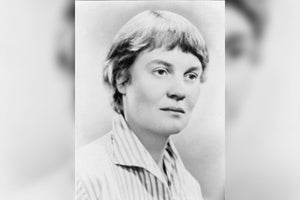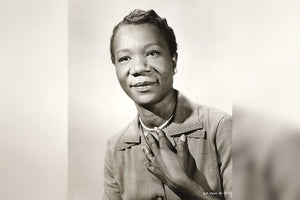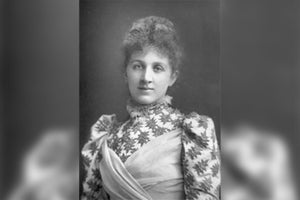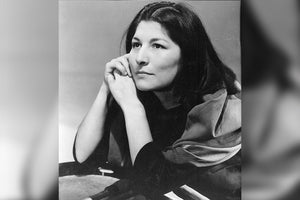Birthday: January 23, 1918
Who is Gertrude Elion?
Gertrude Elion was an American biochemist and pharmacologist. In 1988, she was awarded a Nobel Prize in Physiology for Medicine. She helped develop medicine for treating leukemia, AIDS, gout, and malaria. She also developed immune-suppressing medicine.
Five Facts About Gertrude Elion
- Gertrude Elion and her colleagues revolutionized drug development by using a more scientific approach instead of the traditional trial-and-error.
- Gertrude has been awarded 23 honorary titles where three were honorary doctorate degrees from Brown University, George Washington University, and the University of Michigan.
- She was one of the first few women awarded with a Garvan Medal by the American Chemical Society in 1968.
- She was the first woman to be included in the National Inventors Hall of Fame in 1991.
- She was awarded a Lemelson-MIT Lifetime Achievement Award in 1997.
Inspirational Quotes from Gertrude Elion
“Nobody took me seriously. They wondered why in the world I wanted to be a chemist when no women were doing that. The world was not waiting for me.”
“I loved to learn everything, everything in sight, and I was never satisfied that I knew everything there was to know in each of my courses.”
Early Life
Gertrude Elion was born in New York on January 23, 1918. Her father was a dentist, and they lived in an apartment next to her father's dental office. After her brother was born, they moved to the Bronx, where they both went to public school for their education.
Turning Point
Her grandfather died when she was only 15 from stomach cancer. From that experience, she decided to pursue a career that can cure this disease.
Education
In 1933, she entered Hunter College and studied chemistry. She graduated at the age of 19 but was unable to pursue higher education at that time. Because of the great depression, her family's finances were badly affected. She had applied to universities to get a fellowship but was rejected for any financial assistance.
Using the money she saved from multiple jobs, along with help from her parents, Gertrude pursued her Master's degree in chemistry at the New York University, where she graduated in 1941.
In 1944, she entered Brooklyn Polytechnic Institute for her doctorate. She had to choose between pursuing her studies or working at Burroughs Wellcome and chose the latter. Although she did not finish her doctorate, Gertrude was given an honorary doctorate from Brown University and George Washington University.
Mission and Work
After graduation, Gertrude worked as a secretary. She also taught nurses at the New York Hospital School of Nursing. Although she was able to find an opportunity to work in a laboratory, it was unpaid. She took on multiple jobs until World War II, where she was hired as a chemist for Johnson & Johnson. She worked on analyzing quality control.
At Burroughs Wellcom in 1944, Gertrude became an assistant to Dr. George Hitchings. George assigned her to study purines, organic compounds found in DNA. Based on her findings, Gertrude had been able to publish 225 papers. By 1950, Gertrude and George made a treatment that can hinder the cell growth of leukemia.
With further research, Gertrude formulated chemotherapy drugs suitable for children and adults. She also discovered a medication that can suppress the immune response. It was a remarkable discovery that led to prevent organ transplant rejection. She was also behind the development of treating malaria and bacterial infections.
Most treatments addressed bacterial infections. Antiviral drugs were harder to produce because it was too complicated. Gertrude focused her study on purines to hinder virus replication. This led to the development of a treatment for herpes and AIDS. With the latter discovery, Gertrude, along with George Hitchings and James Whyte Black, received the Nobel Prize in physiology or medicine in 1988 for laying the foundations of scientific drug treatment.
Death and Legacy
Gertrude Elion devoted her life to making medicine that saved millions of lives. She altered medical research. With her discoveries, she made medicine for people with leukemia, herpes, AIDS, meningitis, malaria, gout, and so much more.
She retired in 1983 from Burroughs Wellcome as Head of the Department of Experimental Therapy. After retirement, she continued as a Scientist Emeritus and a consultant to the university and various medical institutions. She taught and researched at Duke University as well. She imparted her knowledge that she gained from her experiences in hopes of further developing treatments.
With her thirst for knowledge and her passion for realizing her dream, she pushed through any obstacle laid in front of her. While the world did not accept women in science, she pushed through to achieve her dream. From the secretary to the head of a department, Gertrude not only contributed to science. She paved the way for the newer generation of women to flourish in the field.
Gertrude died on February 21, 1999, on Chapel Hill in North Carolina at 81. With her research and discoveries, medical research changed drastically. Using her scientific approach instead of the traditional trial-and-error, she discovered ways to save lives. Even after her death, we still rely on her discoveries and techniques to treat illnesses.
![]() Fast Shipping
Fast Shipping![]() Subscribe to our Newsletter
Subscribe to our Newsletter![]() 🌟 New Global Competition 🌟
🌟 New Global Competition 🌟















